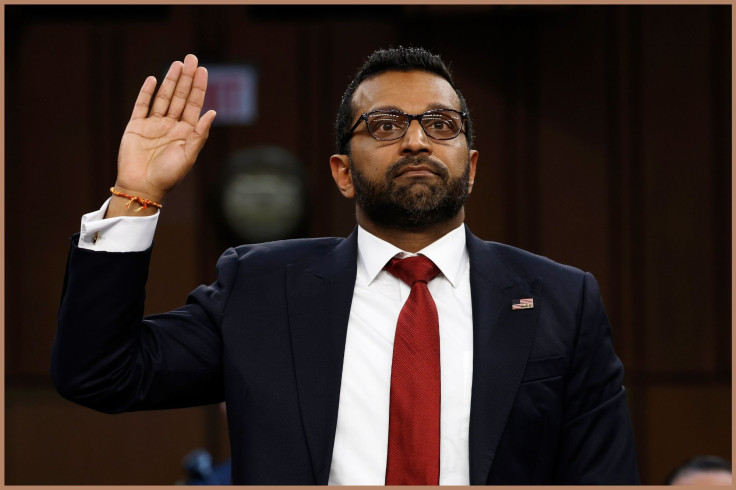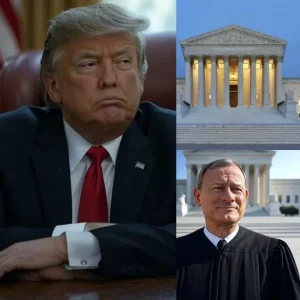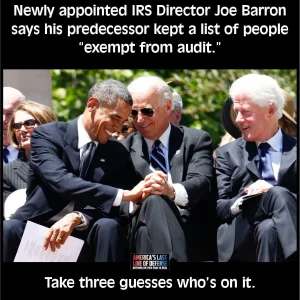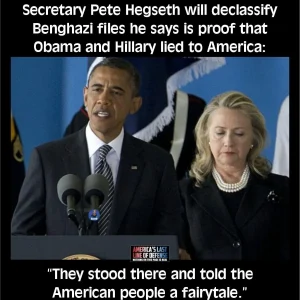In a stunning revelation that has sent shockwaves through the political landscape, FBI Director Kash Patel has uncovered a hidden room at the bureau’s headquarters containing “burn bags” filled with thousands of sensitive documents tied to the Trump-Russia investigation, according to sources cited by Fox News Digital. These burn bags, typically used to securely dispose of classified materials through burning or shredding, were discovered in a previously undisclosed sensitive compartmented information facility (SCIF) within the J. Edgar Hoover Building in Washington. The discovery has ignited a firestorm of public debate, raising questions about transparency, accountability, and the handling of one of the most controversial investigations in recent U.S. history.

The documents reportedly include a classified 29-page annex to Special Counsel John Durham’s 2023 report, which examined the origins of the FBI’s Crossfire Hurricane investigation into alleged ties between Donald Trump’s 2016 presidential campaign and Russia. Sources indicate that this annex contains critical intelligence, including evidence from credible foreign sources, suggesting that the FBI may have played a role in promoting the Trump-Russia collusion narrative even before launching the formal probe. One source described the intelligence as predicting the FBI’s actions “with alarming specificity,” hinting at a coordinated effort within the U.S. government to amplify claims of collusion to benefit Hillary Clinton’s campaign. The release of this annex, currently under declassification review by CIA Director John Ratcliffe, Director of National Intelligence Tulsi Gabbard, Attorney General Pam Bondi, and acting NSA Director William Hartman, is expected to lend credibility to assertions of political bias in the investigation.
Patel, a former critic of the FBI who has vowed to bring transparency to the bureau, described the hidden room during a June interview with Joe Rogan, without initially disclosing its contents. He recounted finding a space “full of documents and computer hard drives that no one had ever seen or heard of,” allegedly concealed by former FBI Director James Comey and other officials. Patel’s team is now working to transfer these materials to Congress, with Senate Judiciary Committee Chairman Chuck Grassley set to make the declassified annex public. This move could reignite scrutiny of the FBI’s handling of the Trump-Russia probe, particularly in light of Durham’s findings that the investigation was “seriously flawed” and lacked sufficient evidence to justify its initiation.

The Trump-Russia investigation, sparked in July 2016 by the Steele dossier—a collection of unverified allegations about Trump’s ties to Russia, reportedly funded by the Clinton campaign—has long been a lightning rod for controversy. The dossier, authored by former British intelligence officer Christopher Steele, prompted the FBI’s Crossfire Hurricane probe and led to widespread surveillance, including of Trump campaign aide Carter Page. Patel, who served as chief investigator for then-House Intelligence Committee Chairman Devin Nunes, played a key role in uncovering alleged surveillance abuses, detailed in a 2018 memo that criticized the FBI’s actions under the Foreign Intelligence Surveillance Act.

Critics of the FBI, including Patel and former Trump campaign aide Carter Page, argue that the discovery of these documents validates claims of systemic bias within the bureau. Page, who faced improper surveillance, praised Patel’s efforts, stating that his work exposed “one of the greatest election interference scandals of all time.” Meanwhile, speculation has emerged about additional evidence, including notes from a 2016 meeting where former CIA Director John Brennan allegedly briefed senior Obama administration officials on a Clinton campaign plan to “vilify” Trump by linking him to Russian interference. Such revelations could further erode public trust in the FBI’s impartiality.
As the declassification process unfolds, the public awaits the release of these documents, which could reshape perceptions of the Trump-Russia investigation. For now, the discovery has fueled intense backlash, with supporters of transparency hailing Patel’s efforts and critics cautioning against politicizing the FBI’s operations. The unfolding saga underscores the deep divisions surrounding the 2016 election and the enduring quest for accountability in America’s intelligence community.






